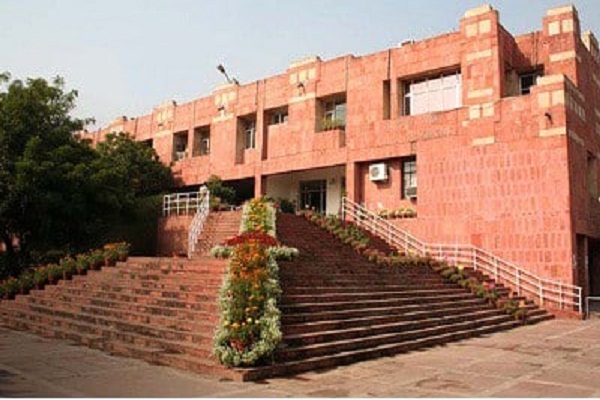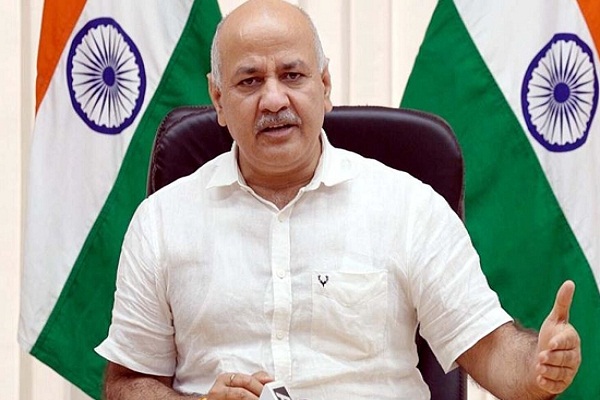In this globally and digitally interconnected world, all learners need new skills and knowledge to succeed. School Education is striving for excellence by making digital learning a priority. After the pandemic, many schools had to shift their mode of learning from offline to online. The need is to address the learning gaps, which will minimize disruption and build a strong educational ecosystem.
In the 21st century learning, the most important skill is critical thinking. Critical thinking is the foundation of making good decisions, judgement and the ability to draw the right conclusion. Currently, there is a need to focus on providing the school students with the guidance so that they can make independent life decisions.
Speaking during the inaugural session, Mr Parmod Kumar, Department of School Education, Haryana Government, said, “Schools have faced potential challenges after the Covid 19 pandemic in 2020 and 2021. They have coped up with this by formulating a system that helps students in their school education. Moreover, technology is playing a vital role in imparting education in the schools.”
Dwelling his views on the topic, “Redefining the Leadership is the Next New Normal: Roadmap Ahead”, he emphasized on the role of teachers that plays a major importance in the life of students. So, it is required that training programs should be conducted for the teachers in order to equip teachers with the knowledge and skills they require to perform their tasks effectively in the classroom.
The three-day event was organised by Elets Technomedia Pvt Ltd between 7-9 September, 2021 and powered by Digital Learning magazine. Mr Ravi Gupta, CEO, Elets Technomedia Pvt Ltd has also introduced the inaugural session and given his remarks on the education sector’s development. The event laid emphasis on the role of Artificial Intelligence (AI) and why it is crucial for the education fraternity to implement it in the learning process currently.
Artificial Intelligence will be used in a better way to assess students during examinations. Assessing students through AI-based technologies will help to understand the learning outcome of students. AI-enabled technologies help teachers identify social and emotional needs of students. Proper collaboration and creativity is required to engage students in every way possible. For this, many companies are working hard to provide solutions that solve problems and learning gaps.
The event focused on the use of Artificial Intelligence (AI) and how it is providing solutions in imparting learning in classrooms. The schools need to adapt to the new tools and technologies to achieve the long-term goals. It seems that Artificial Intelligence (AI) will change the education system in the next 25 years.
In addition, the panelists also highlighted that the National Education Policy (NEP) 2020 focuses on customized learning for students. NEP aims to bring several changes in the education system. Critical thinking, analytical learning, and skill development are some of the priorities under NEP. The conference has highlighted the need for conceptual learning rather than content-driven education.
Nitil Gupta, Co-founder & Director, Eduvacancy said that there is a need to create a strong learning management system that will help the teachers to experiment and innovate. Training teachers to operate new tools and technology is crucial. However, investing in the right channel is important as well.
In similar lines, Harish Sanduja, Director, Seth Anadram Jaipuria Group of Schools said, “We should invest in the right people in order to build a sustainable future. The government is focusing on increasing investment in the education sector.”
The event is Asia’s biggest summit on education and has witnessed participation from industry leaders, opinion makers and experts from the school education sector.
With a rich legacy, the 20th World Education Summit, 2021 focused on fostering innovations, investments, technology transfers and global partnership opportunities in the education domain.
The summit has observed attendees from across the globe sharing the best practices, policy updates, finding appropriate solutions and becoming aware of the latest technical know-how.
The edu-leaders participated during the event, which included Brian Cooklin, Managing Director, Nord Anglia Education; Annabelle Villamarin, Primary School Principal, Lancers International School; Ashish Gulati, Vice-Chairman, Blue Bells Group of Schools, Gurugram; Dr. Vidhukesh Vimal, Headmaster, The Assam Valley School, Tezpur; Poonam Kochitty, Principal, Seth Anandram Jaipuria School, Lucknow; Gautam Rajgarhia, Pro Vice Chairman, Delhi Public School; Vineet Kansal, CEO, The Newtown School, Kolkata; Dr Seema Negi, Director Principal, Sanjeevani World School, Mumbai; Divjot Kaur, Principal, G D Goenka Public School, Jhajjar;Dr Shilpa Jejurkar, Principal, Amber International School, Mumbai; Abhishek Bagchi, Principal, RMPS International School, Ankleshwar including other eminent members of the education fraternity was part of the conference.





























